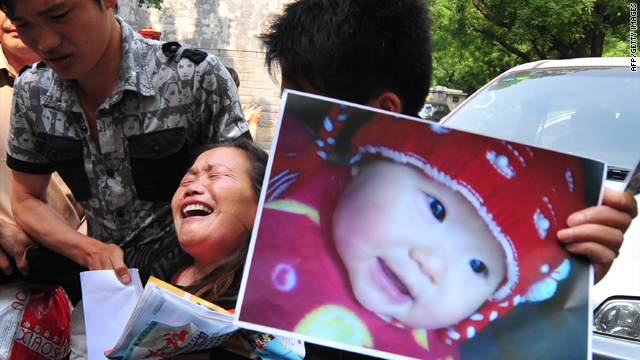The tainted milk scandal that swept through China in 2008 revealed systemic flaws in food safety regulations and had profound implications for public health. This alarming event culminated in the execution of two individuals, a decision that sent shockwaves through both domestic and international communities. It serves as an emblem of the severity of the consequences when regulatory oversight falters.
At the heart of the scandal was the widespread contamination of infant formula with melamine, a toxic chemical illegally added to artificially inflate protein content. Melamine, in this context, posed egregious health risks—especially to infants—with numerous children becoming gravely ill, some tragically succumbing to kidney failure. This public health crisis drew attention not only to the failures of individual corporations but also to the governmental negligence that allowed such rampant malfeasance to occur.
The execution sentences against the culprits were emblematic of a broader societal disdain for lax regulatory practices, and a governmental attempt to convey a message: there would be zero tolerance for those who jeopardize public health for profit. However, this extreme measure also raises profound questions about due process and the efficacy of capital punishment as a deterrent against corporate crime.
Moreover, the Chinese populace’s reaction highlighted a deep-seated frustration with corruption and ineptitude within the regulatory framework. It is fascinating to observe how a society grappling with rapid modernization simultaneously confronts age-old challenges of governance and ethical accountability. The resonance of this scandal reached far beyond the borders of China; it compelled global consumers to reevaluate the integrity of food production processes within their own nations. This incident sparked widespread reforms in food safety standards worldwide, revealing interconnectedness in an increasingly globalized market.
Furthermore, the scandal’s aftermath portrayed the Chinese state wrestling with the dual pressures of maintaining economic growth and ensuring public safety. Citizens began to scrutinize not just name brands but the entire infrastructure of food production, prompting a societal shift towards greater transparency and accountability. The ordeal acted as a catalyst for reform, navigating China toward the establishment of stricter regulatory measures aimed at safeguarding public health and restoring confidence in domestic products.
In essence, the tainted milk scandal serves as a cautionary tale, illuminating the dire consequences of neglecting regulatory oversight. It underscores the imperative that safety and integrity must be sacrosanct in food production. As consumers become more vigilant and as authorities tighten regulations, the episode remains a pivotal moment in China’s journey toward an earnest commitment to food safety. Ultimately, it encapsulates a complex interplay between corporate responsibility and governmental oversight, inspiring ongoing discourse regarding ethical practices in a global economy.
